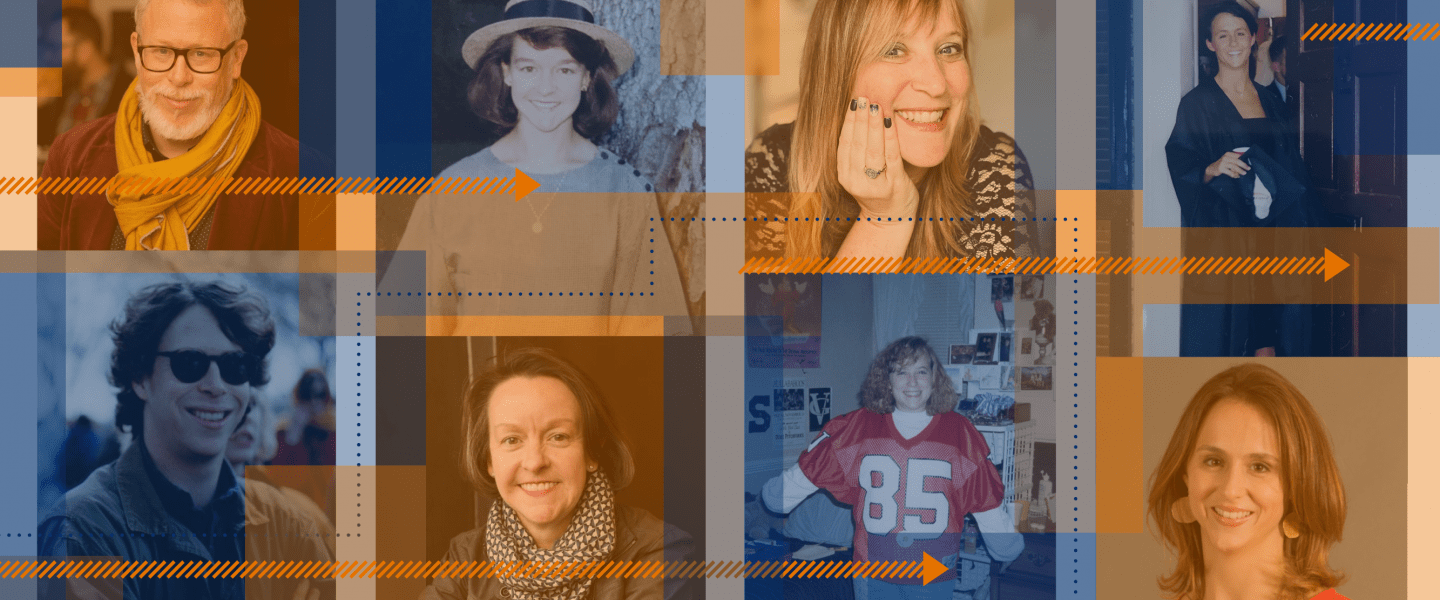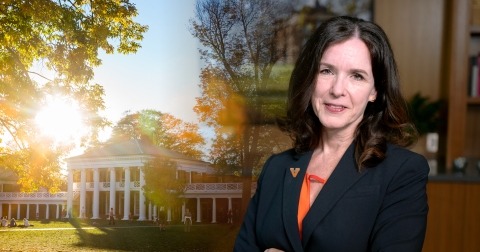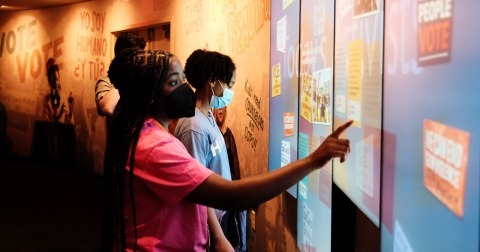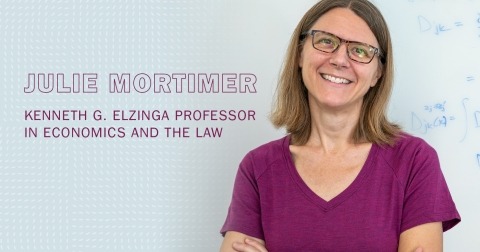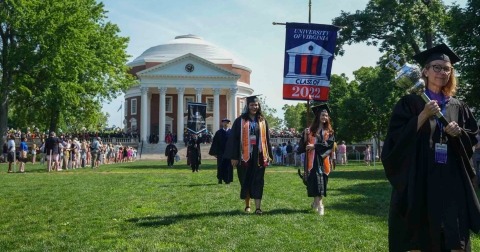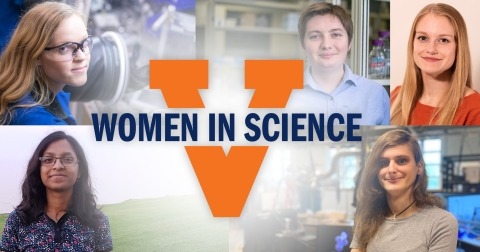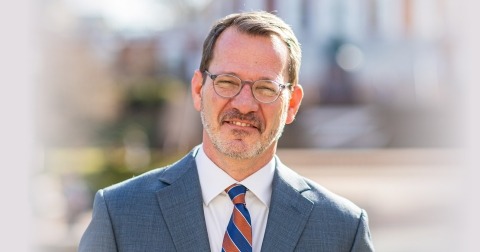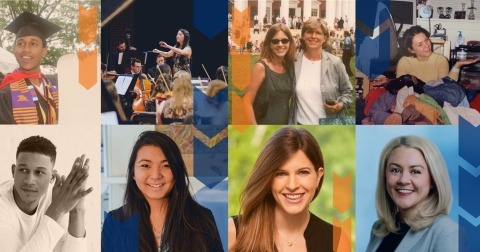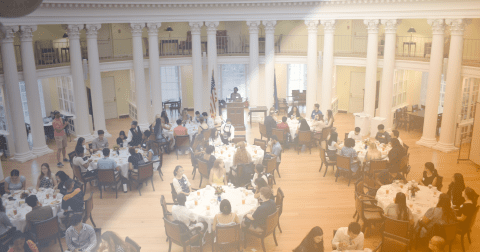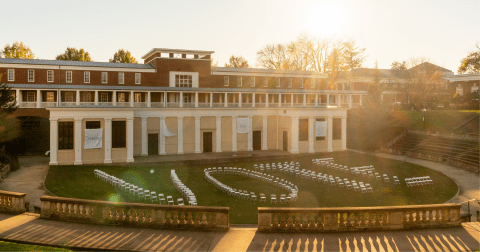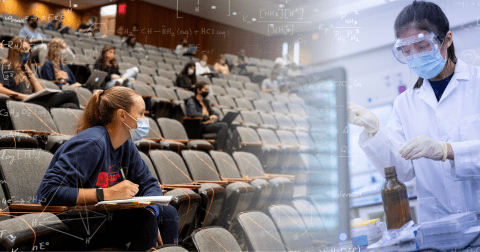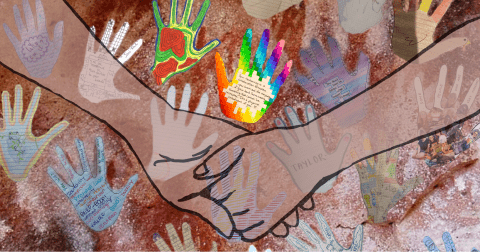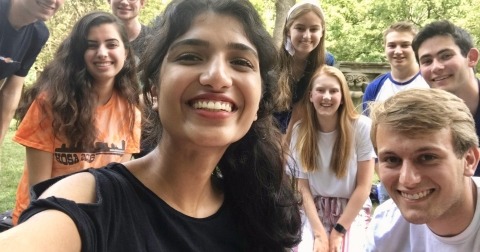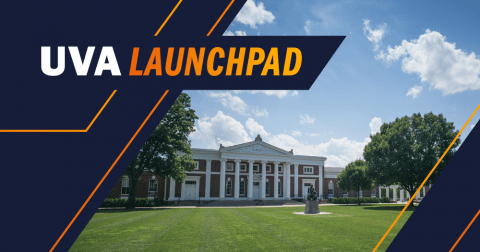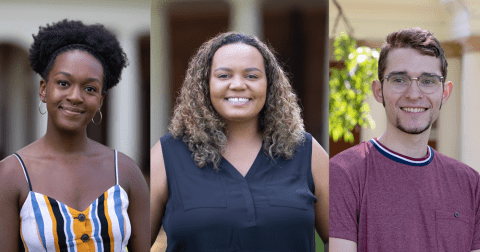According to the Internet Association, the Internet created more than six million jobs in 2018 alone. But college students graduating just a few months before the launch of the first web browser in 1994 had little idea how the Internet would change the world, and not one of them had a degree specific to a digital world.
For the current generation of students, the coronavirus pandemic may have the same power to reshape the economic landscape, making it impossible to say what new challenges will exist when they’re ready to enter the job market. For those who want to be ready for whatever the future brings, a liberal arts degree may be the best prescription.
McKenzie Furber, a 2011 graduate of the College of Arts & Sciences with a degree in both psychology and American studies, is a recruiter for Kindred Partners, an executive search firm based in San Francisco. She says that she rarely looks for someone with a specific degree.
As a recruiter, she’s helped fill everything from early-career jobs to C-suite positions. Her advice to students is, “Study what you’re interested in. Give yourself an opportunity to think deeply about it and don’t worry about whether it’s going to be applicable to whatever it is you do when you graduate.”
Furber never expected to be doing the work she does, but her interest in psychology certainly helped her get there. Like so many College grads, being able to explore a variety of interests and discover her strengths as a student has been the key to preparing for a world where unexpected opportunities are right around the corner.
From storyteller to digital marketing
John Haddad graduated from the College in 1989 with a degree in art history. Today, he works for Hamilton Beach, a leading provider of kitchen appliances and restaurant equipment, as a senior digital marketing specialist, a career field that barely existed ten years after he graduated from UVA. He began with the company as a brand manager and is now managing the delivery of consumer-oriented digital content.
A side gig as a food critic gave him a clear connection to a company that helps its customers enjoy cooking, but his Arts & Sciences degree gave him the skills he uses every day.
“I consider myself a storyteller,” he says. “When I’m selling products or services, I’m telling stories. That’s how I look at it: creating and sharing stories. When you look at a painting, you’re trying to crystallize the story behind that piece. What’s the story it tells us? How does that shine a light into a different time, a different age, politics, or religion, or what have you? Being able to tell the story of a Minoan pot or a Renaissance painting…that was a breeding ground for being able to tell stories and communicate ideas.”
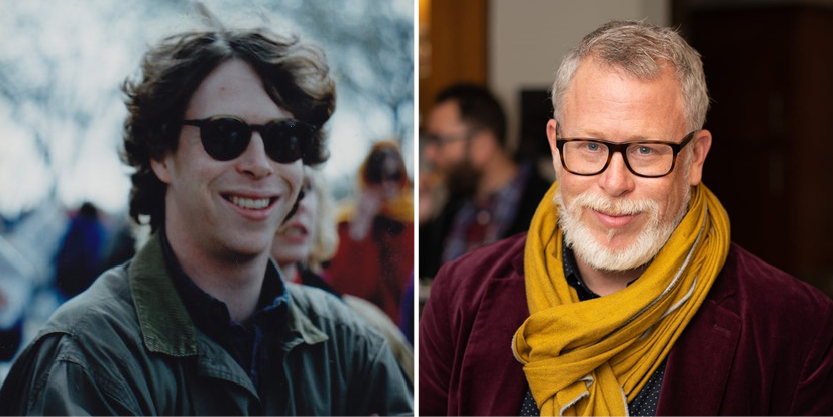
John Haddad (CLAS ‘89) then and now. Haddad’s degree in art history opened the door to a career in digital marketing for a leading provider of kitchen appliances and restaurant equipment.
His advice for someone who wants to make the most of a liberal arts degree?
“Look beyond the classroom, cultivate relationships with professors, and look for opportunities to integrate your education into the world. Look beyond it just being a vehicle for getting a job. Savor the experience. Take opportunities to do internships, and get everything out of it that you can.”
From politics to social media
Mary Catherine Wellons’ career began in 2004 when she graduated from the College with a BA in Political and Social Thought. Now she’s Deputy Bureau Chief for CNBC’s Washington Bureau, managing a team of reporters and producers covering business and politics. What got her there was a willingness to embrace a new form of media that few people understood.
Almost ten years after Wellons graduated, few companies had social media departments, CNBC included.
“I raised my hand,” Wellons says, “because I was interested in establishing a social media presence and building that out in our newsroom. I flew to New Jersey, to our headquarters, and I gave a presentation to senior management, and they took a chance.”
With the network’s blessing, she built CNBC’s first social media team.
“In those early days it was all about teaching and training the news room. We had to build a social media strategy and plan, we had to establish guidelines, what you can and can’t tweet. And we were the experts in the newsroom. The senior people in the newsroom were coming to us for advice, not only to promote what we were doing but also to cover the news of the day.”
She credits the Political and Social Thought program for giving her the foundation she needed as a journalist. “The program was phenomenal. It probably could have prepared me for just about any role. It’s a fantastic foundational course in how to think about politics and society.”
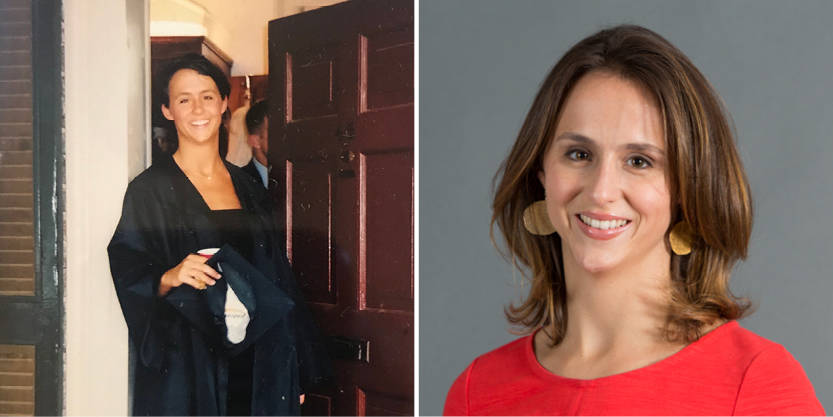
Mary Catherine Wellons (CLAS ‘04) then and now. With a BA in political and social thought, Wellons was a pioneer in social media for CNBC.
Her advice to students in the liberal arts today reflects the same spirit that led her to become a new-media pioneer.
“If you realize that that thing you want to do doesn’t exist at UVA, start an organization, create a club, build something from nothing, find other people who are passionate about the same topic or issue and build something new,” she says. “Employers love to see that inventiveness and that creativity.”
An appetite for learning leads to a career in sustainability management
Lisa Manley was particularly interested in the Soviet Union as a student of international relations at UVA, but by the time she graduated in 1993, the Soviet Union no longer existed. Today, she’s the vice president of sustainability at Mars, Inc., the global manufacturer of brands like M&M’s and Milky Way.
Her work in sustainability management, she says, “sits at the intersection of sustainability strategy, sustainability communications, sustainability policy advocacy, and stakeholder engagement.”
“Don’t be afraid to start in one direction and gravitate in new directions. The world of work is a fascinating place, and it’s evolving so quickly, we need to continue to focus on being students of the world around us.”
Lisa Manley, (CLAS '93) vice president of sustainability at Mars, Inc.
It’s an important part of corporate strategy today, but it’s a field that didn’t take shape until almost 15 years after Manley walked the Lawn in her cap and gown.
After pursuing a graduate degree with a focus on higher education at Curry, she began working as a consultant, advising corporations interested in partnering with educational institutions.
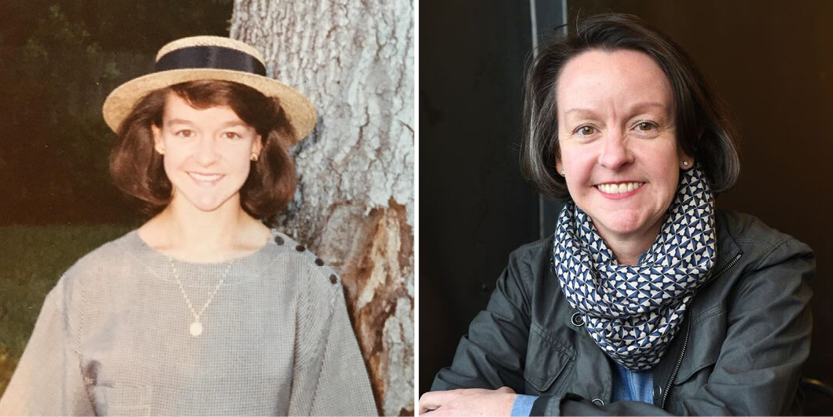
Lisa Manley (CLAS ‘91, M.Ed. '93) then and now. With a BA in international relations, Manley is a trailblazer in sustainability management for the global manufacturer of brands like M&M’s and Milky Way.
Doing that work, she says, she “slowly but surely began to expand the work that I was doing beyond higher education and found that I loved working inside a company on issues that were related to environmental stewardship and human rights, and that was at a time that businesses were beginning to pivot from thinking about those things simply as issues that they were fighting to thinking about them as business strategies.”
It was a circuitous route, but one that found her taking part in every stage of the evolution of the field and helping make it what it is today. And she credits the “appetite for constant learning” that she acquired as a College student at UVA.
For those who can see themselves in the broad and dynamic field of sustainability management, she recommends “a broad based liberal arts degree with the right exposure to relevant issues in environmental stewardship and management, human rights and ethics.”
Beyond that, she says, graduate school is the place to fine tune your education.
A love of writing helps build human capital
If you’ve had a job within the last thirty years, you probably were hired by a human resources manager. Much before the 1990s, that person likely would have been a personnel manager with a much narrower set of responsibilities. And in the years to come, the role of HR will continue to evolve.
In technology-related industries, where it’s getting harder for companies to fill a growing number of positions, HR executives are changing the way they think about building human capital.
According to Carmen Shirkey Collins, Employee/Employer Brand and Social Media Lead for Cisco Systems, the global IT, networking and cybersecurity enterprise, her company no longer has an HR department. That function, she explains, “is called ‘People and Communities,’ because it better reflects what we do.”
Taking a cue from social media, Collins’ team is finding ways to see Cisco employees as influencers in the job market — creating connections between employees and job prospects that make it easier for Cisco to find job candidates who meet its needs and fit its culture. Collins’ role is to manage the company’s voice, its tone, and its guidelines in that space and to explore the opportunities that are constantly emerging in the social media world.
Collins graduated from UVA in 1994 with a degree in rhetoric and communication studies, but she says, “It was that communications major that kicked off my career. Social media didn’t exist at the time, so I looked for jobs where I could be a writer.”
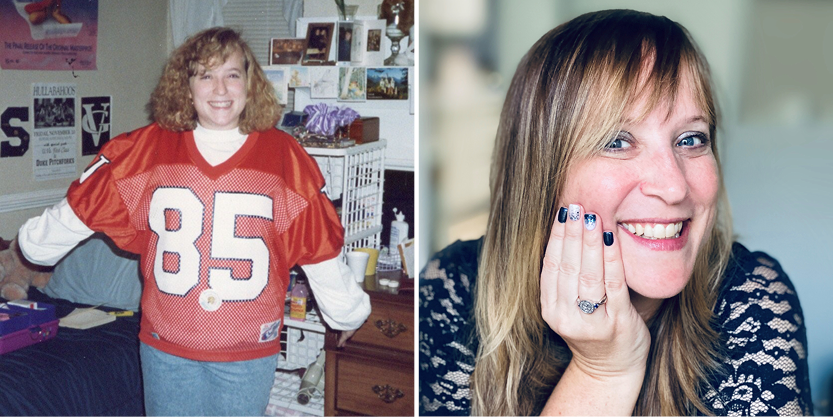
Carmen Shirkey Collins (CLAS ‘94) then and now. Her degree in rhetoric and communications studies is helping her revolutionize how companies build human capital.
“It was when I was working for an advertising agency that the Internet as a marketing tool became a thing, and I was the youngest person at the agency, which is often how this kind of job gets handed down,” she says.
Collins realized that if she was going to play a meaningful role in the development of the new medium, she would have to throw herself into that work, so she moved to Washington, D.C., to work for America Online, where much of what we now know as social media was beginning to take shape.
Like most graduates of the College, Collins says the key to success is following your passion. For her, writing is central to what she loves about her job.
To find that passion for what you do, she says, you have to ask yourself, “What is the heart of it? What is it you enjoy doing? If you focus on that, you’ll find your career.”

